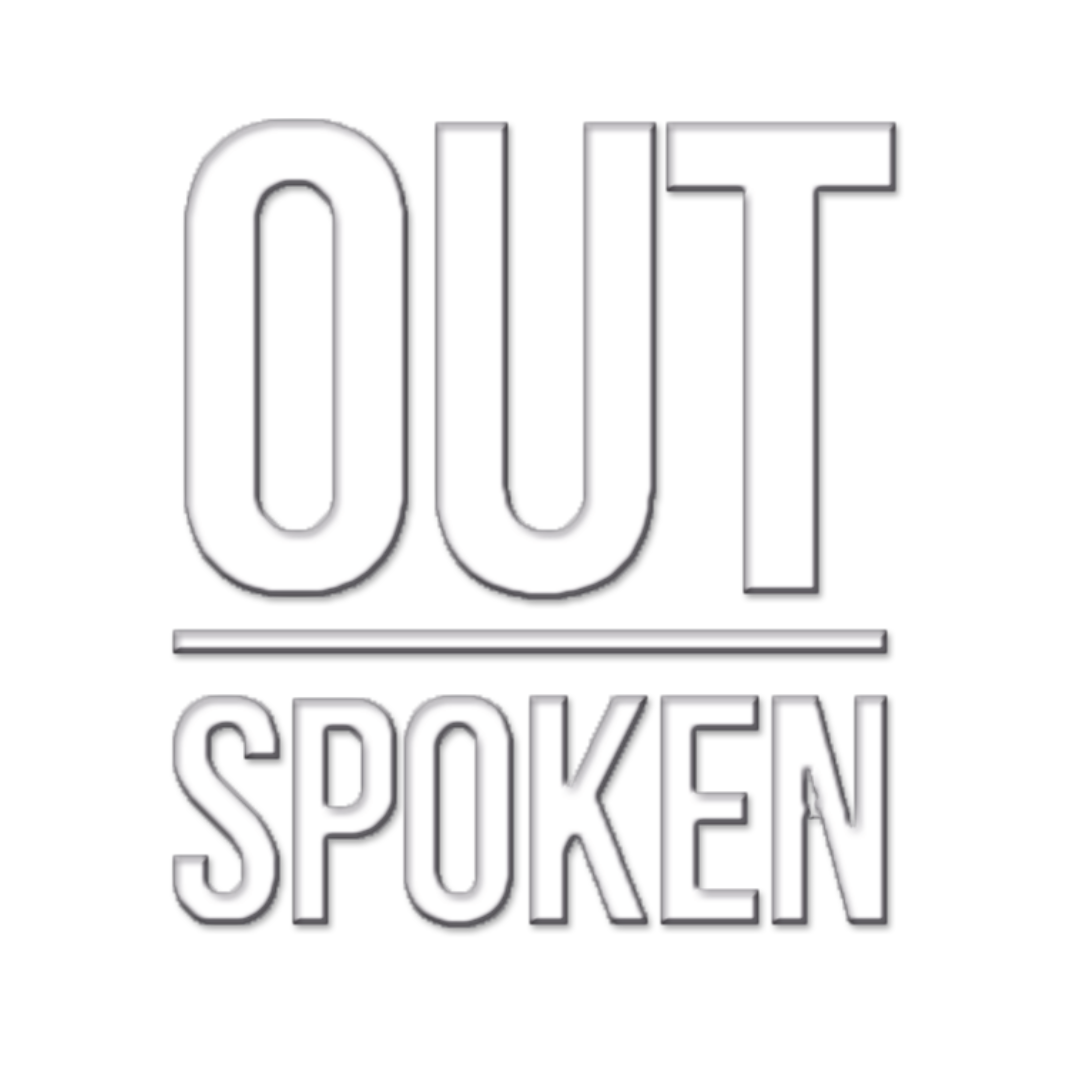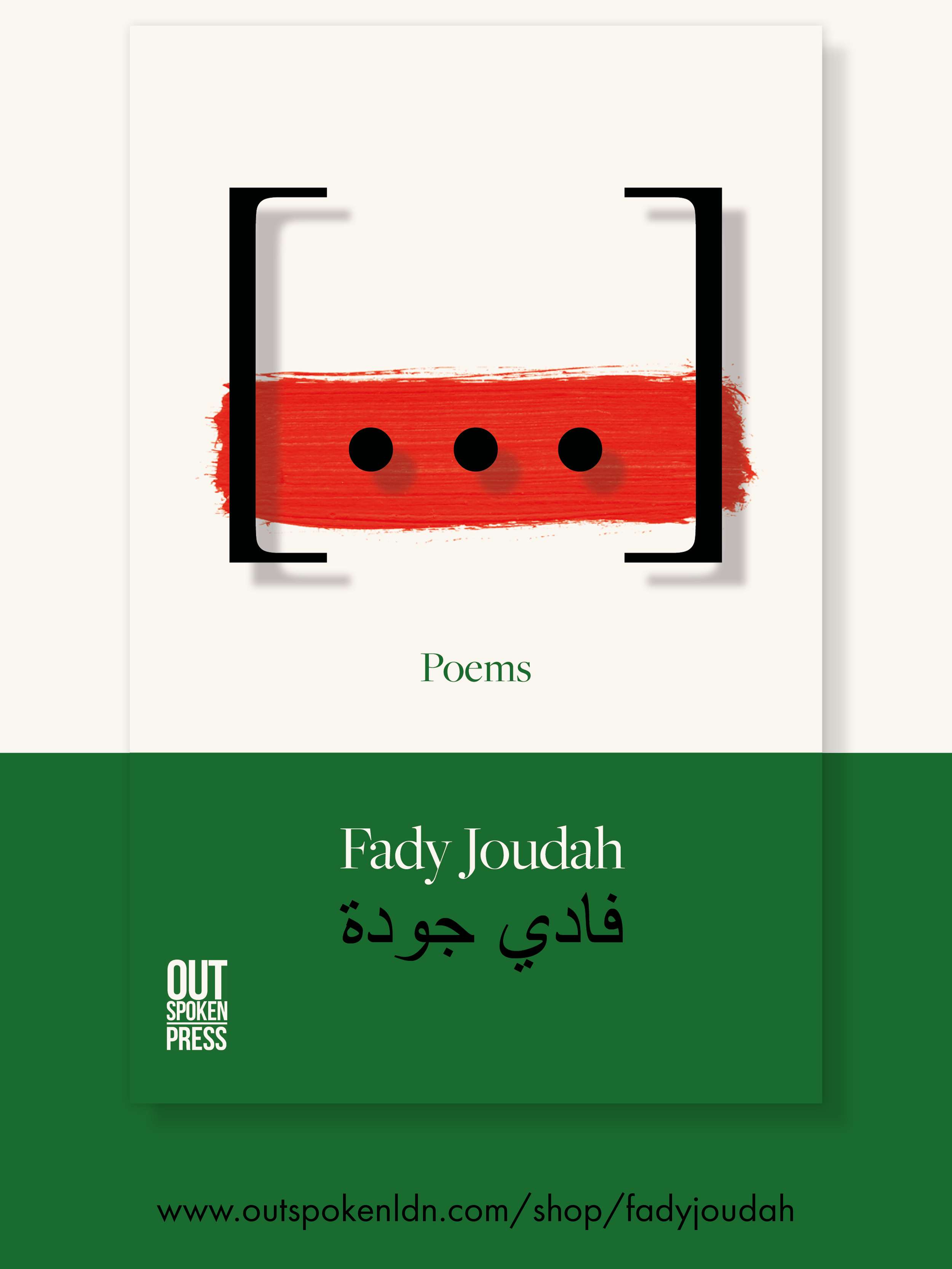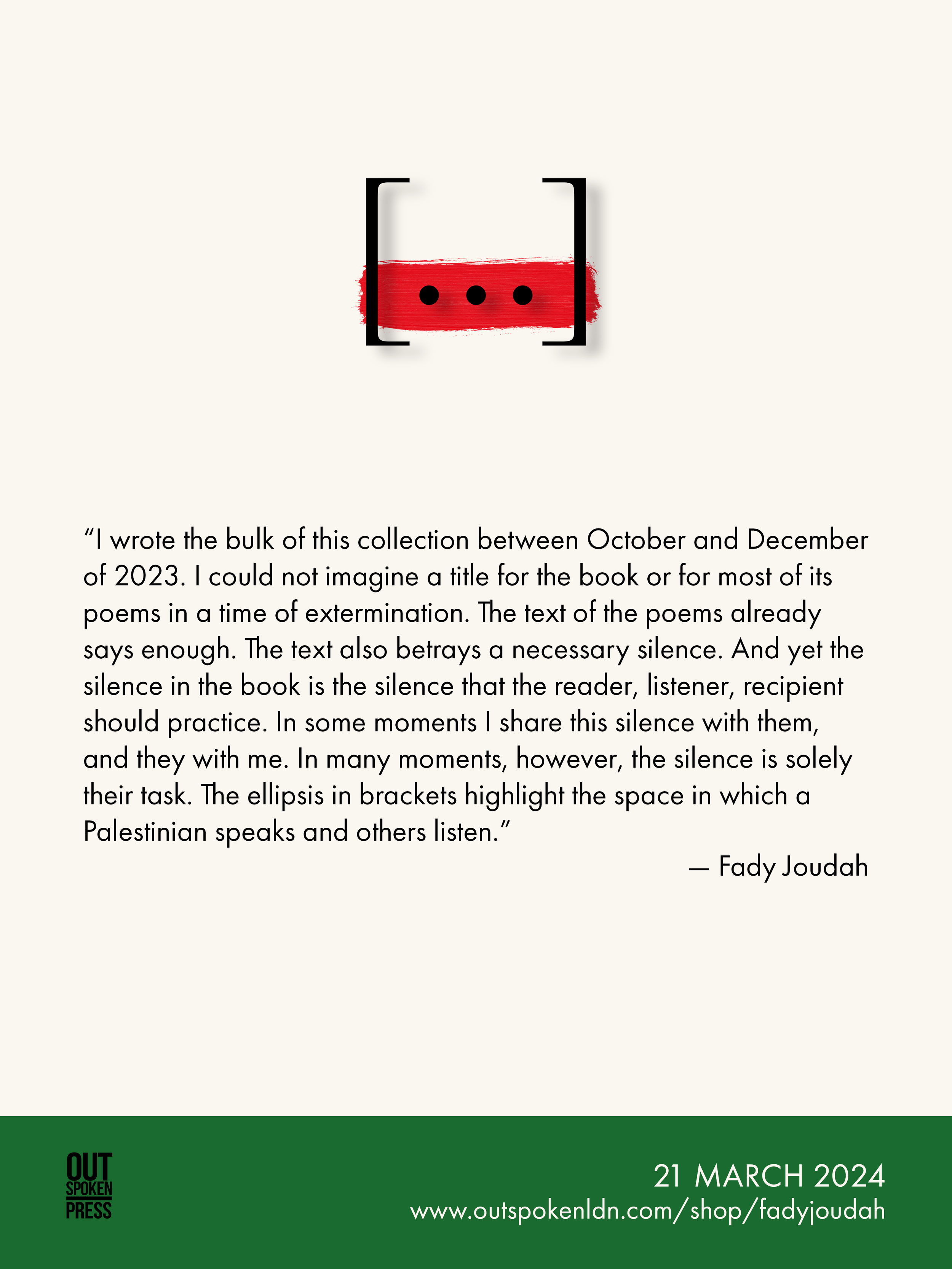This is not a review or a blurb: Some words in support of [...] by Fady Joudah
Who do petals belong to? How are they named? Imagine petals that look away, that don't socialize in the way you expect a petal to love or mourn or listen. Imagine petals organzing to form a bridge. To where? From what? In the logic of Fady Joudah's sequence, the petals "kept my toes warm," but only after they "ate the worms." So, what is this? It's what you think it is. What eats what's eating your dead becomes silk, cotton, wool or "gauze." It becomes a covering, a woven cloth. Who weaves it? The petals? The petals coat or warm a posture so exposed that it both precedes and out-dates life. Suddenly, the voice of this poem is the voice you never expected or wanted to hear in this context. It's the voice of the one who will never return in their given form, or arrive. Are the petals performing, without performing anything, the construction of a shroud? In these poems that can't be aftermath (in conditions that do not end), the beloved's "open heart" is also a face with "two ears, two eyes. One set for breath, one for blood." I'm so moved by the potential of a wound to become a face, to exert a possibility beyond the recognition that accompanies it, always, in the imaginations of others. But also: "If you read this and can hear me," writes Joudah, what's that smell?" Is this an interview? And if this is an interview, then the poet is archiving what we are never meant to know, just as the messages of our internal organs are dormant until something is wrong. Only then do we experience an impossible sensation. On page 77 of this collection, a collection written by a doctor, a translator of the poems of Mahmoud Darwish (among others), a poet who has lost over a hundred members of his family in the Israeli bombardment of Gaza, a collection written in one long and broken sitting in the Autumn of 2023, comes the "Dedication," a poem or beyond-poem that changes what feels possible for a poem, or book of poems, in the current era. Is this an era? No, once more, as Joudah reminds us, eras time out. This collection is not a primordial art work. Instead, it is written in the present and in the future, simultanously. Joudah dedicates his book: "To those who will be killed on the last day of the war. To those who will be killed on the first day after the war ends. To those who succumb in the humanitarian window of horror." Reading these words is to stop reading. To continue reading in another way.
"I am not your translator." -- Fady Joudah.
This is not a review, and it's not a blurb.
[…]
Bhanu Kapil, Fellow of the Royal Society of Literature
With thanks to Bhanu for providing these liberated and liberating words of support.
[…] by Fady Joudah is published on 21 March 2024 and is available for pre-order here.
Bhanu Kapil is the author of six books: The Vertical Interrogation of Strangers (Kelsey Street Press, 2001), Incubation: a space for monsters (Leon Works, 2006; forthcoming in a new edition from Kelsey Street Press, 2022), humanimal [a project for future children] (Kelsey Street Press, 2009), Schizophrene (Nightboat Books, 2011), Ban en Banlieue (Nightboat Books, 2016), and How To Wash A Heart (Liverpool University Press, 2020). How To Wash A Heart was the winner of the TS Eliot Prize and a Poetry Book Society Choice. Kapil is the recipient of a Cholmondeley Award from the Society of Authors and a Windham-Campbell Prize for Poetry from Yale University, and is a fellow of Churchill College, Cambridge.



